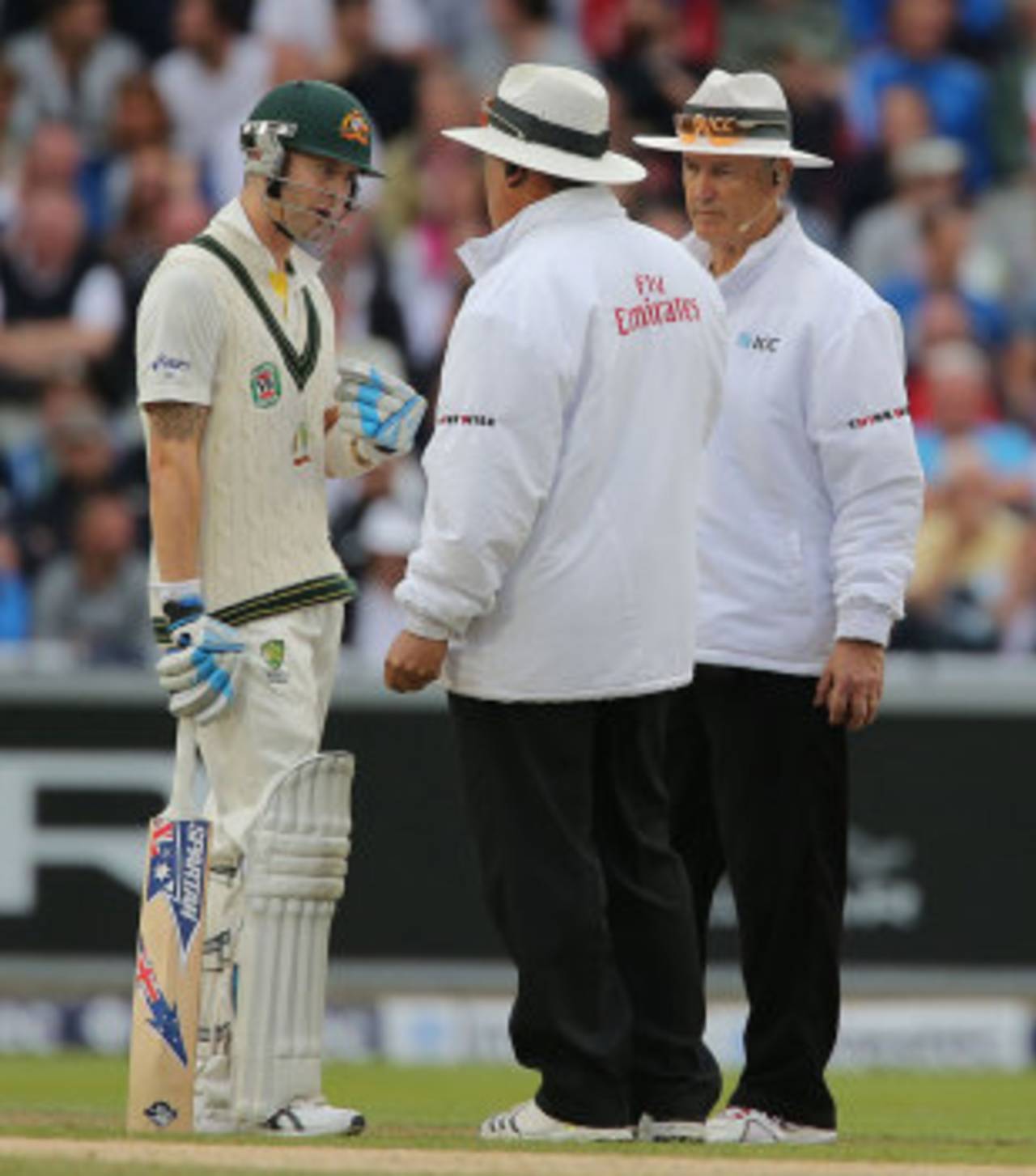Last year, the ICC legalised day-night Test cricket. It didn't seem to matter that a suitable ball had not been found. By the letter of the law, agreement between two countries is all that is required. If Pakistan and Bangladesh feel like playing from 6pm in Dubai with an orange ball, they can. If West Indies and New Zealand want to play from 2pm in St Lucia with a pink ball, that's allowed. Cricket wants to modernise at any cost, appeal to a wider audience. A television audience.
Perhaps cricket can start by satisfying the audience it already has. And they were far from satisfied on Sunday evening. The Ashes is Test cricket's shop window and over the past four days
at Old Trafford, the players have delivered an enticing product. But at 4.25pm,
Tony Hill and
Marais Erasmus unilaterally put up the 'closed' sign. It was, they said, for the good of the players. Someone could have got hurt. But every ball lost from the match hurt the Australians far more than any James Anderson might have sent down in the gloom.
And it can only be the Australia batsmen they were worried about. That became clear when Erasmus confirmed that play would have continued had England bowled spin. The shadow, then, was not enough to endanger England's fielders, or the umpires themselves. A vicious Michael Clarke drive would have sent the red ball flying towards them as quickly off Graeme Swann as it would have off Anderson. No, this had to be about the safety of the batsmen.
The playing conditions stipulate that the umpires can abandon play when the light is "so bad that there is obvious and foreseeable risk to the safety of any player or umpire". But Australia's No. 9, Ryan Harris, didn't have much trouble handling Anderson when he faced what became the last few deliveries of the day. Clarke was seeing the ball fine. He made that clear to the umpires at length during an animated discussion after they had made their call.
"When we start losing it completely from square leg, we give the skipper an option, as we did out here, to bowl spin and he didn't want to do that," Hill said. Of course Alastair Cook didn't bowl spin. He is not an idiot. Every delivery lost from the match tightens England's grip on the urn. He'd have been happy with an 11.01am abandonment.
"For a while there the England fielders were asking about the light and the possibility for when they bat," Erasmus said. "It was fine, but it kept on dropping and dropping then we eventually told the captain to bowl spin and he decided not to which pushed our hand. There was a safety issue and we can't carry on."
Of course they could have carried on, and should have. Cricket wants to modernise but these judgements, these arbitrary decisions not to play, do nothing but hurt the game. Traditionally, batsmen were offered the choice of playing on or leaving the field due to bad light. But in 2010 the ICC altered the rule, in part so that batsmen could not make tactical decisions to go off. The change has sent cricket further back into the dark ages.
Handing control to the umpires is a common-sense approach only if the umpires use common sense. And there has been precious little of that shown by the officials in this series. Of course, if the abandonment costs Australia a chance at regaining the urn, it will do so only because of their own failings at Trent Bridge and Lord's. That is why they are in this position.
But the half hour lost on Sunday - rain arrived at 5pm - could make all the difference in a contest that might go to the wire on day five. Thirty minutes of moderate dullness could cast a gloom over the Tests at Chester-le-Street and The Oval if they become dead rubbers.
There was a frustrating postscript: from 7 to 8pm the sun was shining at Old Trafford and the rain had well and truly cleared. The conditions were perfect for cricket. But by then, the players and umpires were back at their hotels, perhaps with a tray of room service. If they had the TV on, they might have been watching themselves on replay, while millions of viewers could have been seeing them live in prime time.
The ICC seems to have a laissez faire approach to the day-night Test prospect. Perhaps it could throw a little of that flexibility the way of old-fashioned red-ball Tests.
Brydon Coverdale is an assistant editor at ESPNcricinfo. He tweets here
